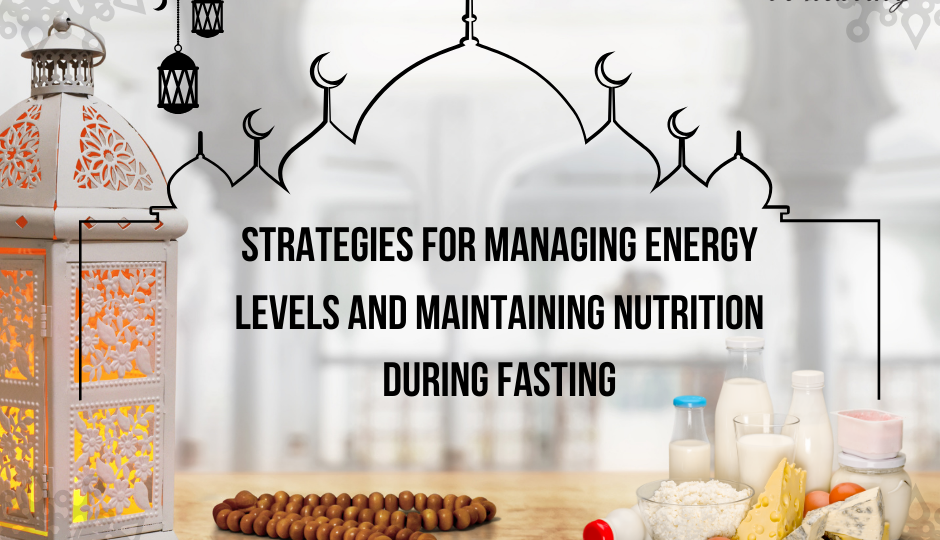Fasting during Ramadan is a sacred and spiritually enriching practice observed by millions worldwide. However, it also presents challenges when it comes to managing energy levels and maintaining proper nutrition. While abstaining from food and drink from dawn until sunset, it’s essential to ensure that the body receives the necessary nutrients to sustain energy levels and overall health throughout the day. Here are some effective strategies for managing energy levels and maintaining nutrition during fasting:
Eat Balanced Meals:
Suhoor, the pre-dawn meal, is crucial for sustaining energy levels throughout the day. It should include complex carbohydrates, such as whole grains and oats, which release energy slowly, providing a steady source of fuel during fasting hours. Additionally, incorporate protein-rich foods like eggs, yogurt, and lean meats to promote satiety and muscle maintenance.
Stay Hydrated:
Hydration is key to maintaining energy levels, especially during long fasting hours. Drink plenty of water during non-fasting hours, especially at Suhoor and Iftar, to prevent dehydration. Avoid caffeinated and sugary beverages, as they can lead to dehydration and energy crashes later in the day.
Include Fruits and Vegetables:
Incorporate a variety of fruits and vegetables into your meals to ensure you’re getting essential vitamins, minerals, and fiber. These nutrient-dense foods provide sustained energy and support overall health during fasting. Opt for colorful fruits and vegetables like berries, oranges, spinach, and broccoli to maximize nutritional benefits.
Limit Processed Foods and Sugars:
While it may be tempting to indulge in sweets and fried foods during Ramadan, these foods can cause energy spikes followed by crashes, leaving you feeling lethargic and fatigued. Instead, focus on whole, unprocessed foods that provide sustained energy and promote overall well-being.
Monitor Portion Sizes:
Be mindful of portion sizes during Suhoor and Iftar to prevent overeating or undereating. Consuming large, heavy meals can lead to sluggishness and discomfort, while inadequate portions may leave you feeling weak and depleted. Aim for balanced meals with moderate portion sizes to maintain energy levels throughout the fasting period.
Incorporate Healthy Fats:
Include sources of healthy fats, such as avocados, nuts, seeds, and olive oil, in your meals to promote satiety and provide long-lasting energy. Healthy fats are essential for nutrient absorption and support various bodily functions, making them an important component of a balanced diet during Ramadan.
Plan Ahead:
Plan your meals and snacks ahead of time to ensure you have nutritious options readily available during fasting hours. Prepare Suhoor and Iftar meals that are balanced and satisfying, and consider prepping healthy snacks like nuts, fruit, and yogurt to have on hand for when hunger strikes between meals.
Listen to Your Body:
Pay attention to your body’s hunger and fullness cues during fasting hours. While it’s important to fuel your body adequately, avoid overeating out of hunger or habit. Eat slowly, savoring each bite, and stop when you feel comfortably satisfied.
By implementing these strategies, you can effectively manage your energy levels and maintain proper nutrition during fasting. Remember that Ramadan is not only a time for spiritual reflection but also an opportunity to prioritize your health and well-being. With mindful eating habits and careful planning, you can nourish your body and thrive throughout the holy month.





